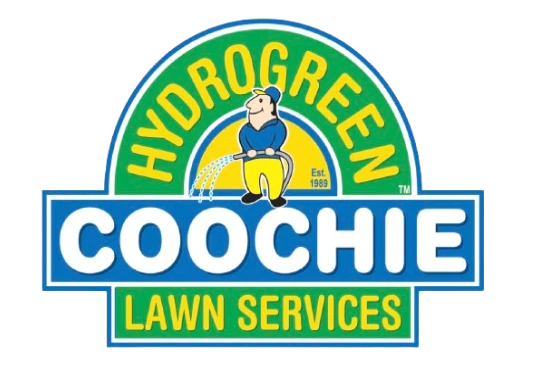I. Introduction
Many Australian homeowners prioritise keeping their lawns lush and green, although doing so can be difficult. Your lawn can become unhealthy and unsightly very rapidly as a result of lawn infestations and weed growth. Proper lawn disease care and weed control services are essential for maintaining a lovely and healthy lawn. The significance of weed and lawn disease control, the advantages of professional services, the effects of weeds and lawn diseases on the environment, and sustainable lawn care practises will all be covered in this article.
II. The Benefits of Professional Lawn Disease Care and Weed Control
Professional lawn disease care and weed control services can offer several benefits for your lawn and the environment. Here are some of the benefits:
A. Use of Environmentally-Safe Products and Practices
Professional lawn care companies use environmentally-safe products and practices that are safe for humans, pets, and the environment. These companies use products that are non-toxic, biodegradable, and low in volatile organic compounds (VOCs).
B. Proper Use and Application of Pesticides
Professional lawn care companies are trained to use pesticides safely and effectively, which reduces the risk of overuse and misuse. They use the right amount of pesticides and apply them at the right time to ensure maximum effectiveness.
C. Minimising Chemical Exposure and Runoff
Professional lawn care companies minimise chemical exposure and runoff by using targeted and localised applications of pesticides and fertilisers. This ensures that the products are used only where they are needed, and not spread unnecessarily.
D. Promoting Soil Health and Biodiversity
Professional lawn care companies promote soil health and biodiversity by using practices that enrich soil and support beneficial microorganisms. These practices can help to improve the health and resilience of your lawn.
E. Enhanced Aesthetic Appeal
Professional lawn care companies can enhance the aesthetic appeal of your lawn by using high-quality products and practices that promote healthy growth and reduce the risk of lawn diseases and weeds.
III. The Impact of Lawn Disease and Weed Growth on the Environment
The unchecked growth of lawn diseases and weeds can have a negative impact on the environment. Here are some of the environmental impacts of lawn disease and weed growth:
A. Negative Effects of Excessive Chemical Use
Excessive use of chemicals in lawn care can have negative effects on soil quality, plant growth, and biodiversity. Chemicals can also leach into groundwater and contaminate local ecosystems.
B. Impact on Local Ecosystems
The unchecked growth of lawn diseases and weeds can displace native species and disrupt local ecosystems. This can lead to a loss of biodiversity and ecosystem services.
C. Contribution to Water Pollution
The overuse of pesticides and fertilisers can contribute to water pollution. These chemicals can leach into groundwater, contaminating water sources and harming aquatic life.
D. Health Risks for Humans and Animals
The use of pesticides and fertilisers in lawn care can pose health risks to humans and animals. Exposure to these chemicals can cause skin irritation, respiratory problems, and other health issues.
IV. Sustainable Lawn Care Practices
A. Integrated Pest Management (IPM) Approach
Integrated Pest Management (IPM) is a sustainable and holistic approach to pest and disease control. This method aims to prevent and manage pest problems by identifying the root causes of the issue and employing multiple control methods, including cultural, physical, and biological controls. Using an IPM approach to lawn disease care and weed control can minimise the use of chemicals, promote natural pest control and ultimately result in a healthier lawn.
B. Organic Lawn Care Solutions
Organic lawn care solutions are an excellent alternative to traditional chemical-based solutions. These products are made from natural ingredients and are free of harmful synthetic chemicals. Organic lawn care products can provide a healthy and green lawn while minimising the environmental impact of lawn care practices. Lawn care businesses for sale and lawn service franchises can explore organic lawn care solutions to cater to the demand for sustainable lawn care practices in Australia.
C. Grasscycling and Composting
Grasscycling is the process of leaving grass clippings on the lawn after mowing, which can help to promote soil health and provide natural fertiliser to the lawn. Composting is another sustainable lawn care practice that involves collecting yard waste, including grass clippings and leaves, and converting it into nutrient-rich compost that can be used to improve soil health. Both practices are effective in reducing waste and promoting a healthier lawn.
D. Water Conservation and Drought Tolerance
Water conservation is an essential aspect of sustainable lawn care practices. During the summer months in Australia, droughts can be a common occurrence, and lawns can quickly become stressed and turn brown. Lawn disease care and weed control services can implement water conservation and drought tolerance practices, including selecting drought-tolerant grass species, using mulch to reduce evaporation and runoff, and ensuring proper irrigation practices to conserve water.
V. Conclusion
In conclusion, lawn disease care and weed control services play a critical role in maintaining healthy and attractive lawns. However, excessive chemical use and incorrect lawn care practices can lead to environmental damage and health risks for humans and animals. Sustainable lawn care practices, including integrated pest management, organic lawn care solutions, grasscycling and composting, and water conservation, are effective methods to promote a healthy lawn and minimise environmental impact.
Lawn care businesses for sale and lawn service franchises can capitalise on the demand for sustainable lawn care practices by implementing these practices and educating customers about responsible lawn care practices to protect the environment.
VI. Closing Thoughts
The future of sustainable lawn care practices in Australia looks promising, with increasing awareness and demand for environmentally responsible lawn care practices. Lawn care businesses for sale and lawn service franchises have the opportunity to grow and expand by incorporating sustainable lawn care practices and educating customers about the importance of responsible lawn care practices. By working together, we can create a healthier and more sustainable environment for future generations.


